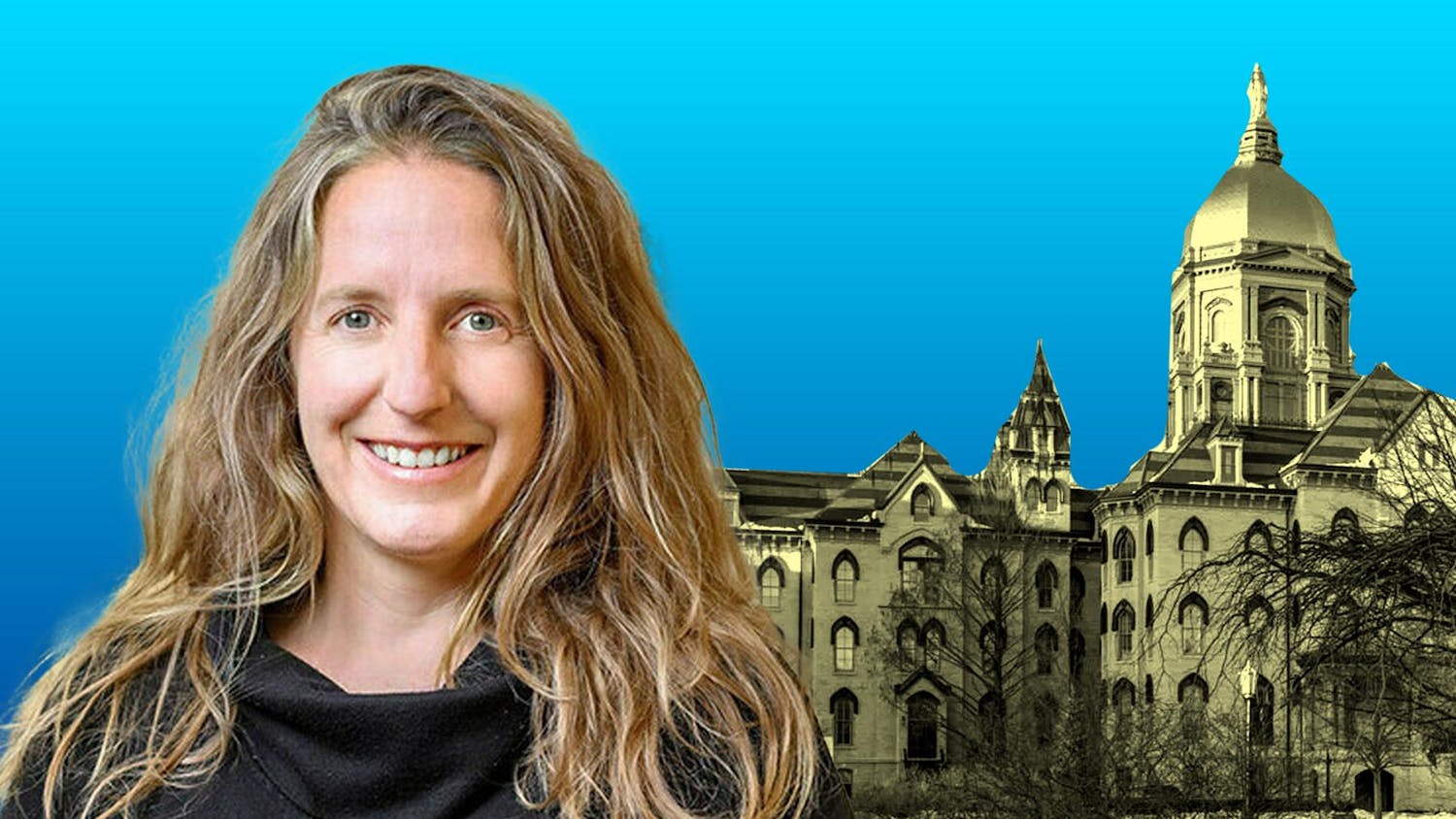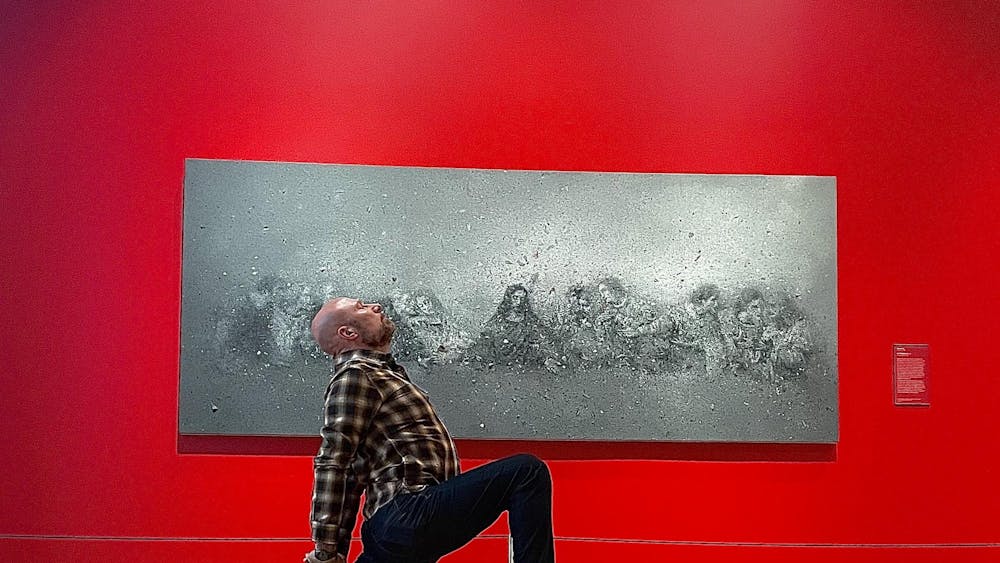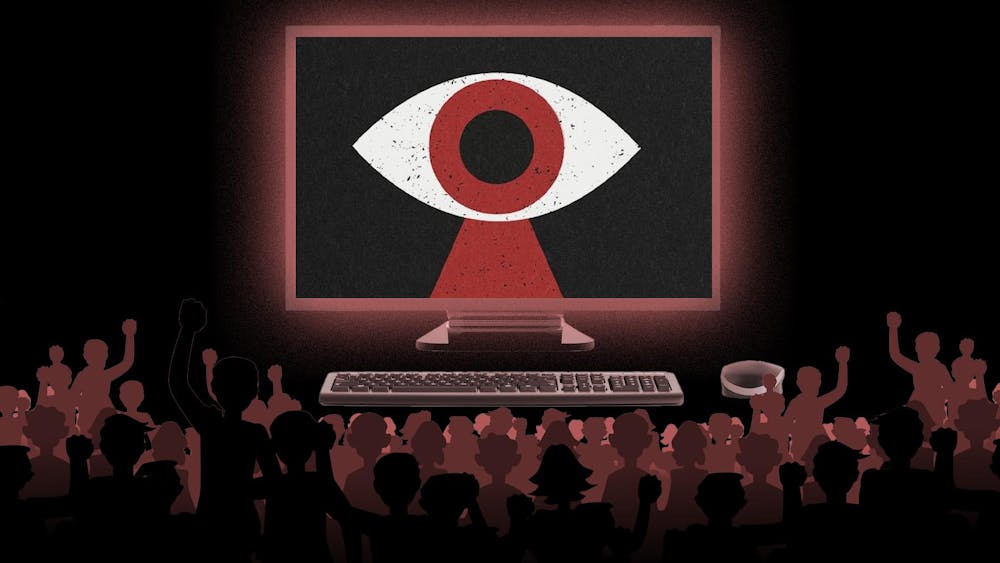Not even Notre Dame can escape the Republican National Convention following famed football coach Lou Holtz’s speech last week. There has been some coverage from The Observer about students’ reactions, but I want to focus on a particular aspect of the speech. The most controversial part of Holtz’s time on the virtual stage was when he called former Vice President Joe Biden a “Catholic in name only.” This is a peculiar comment, considering that the United States is meant to be characterized by separation of church and state. Why would Biden’s religious beliefs matter? Holtz was likely attempting to sway Catholic voters towards President Trump, but his words raise questions regarding the role of religion in our secular government. How do we balance freedom of religion in a non-religious government? How much should our religion influence our political beliefs and political systems? My hope is that this column delves into these questions by presenting a brief history of the separation of church and state, followed by an analysis of how religious beliefs should influence lawmaking.
Let’s start with a brief history of the relationship between religion and government in the U.S. The only mention of religion is in the Establishment Clause of the First Amendment, where it is stated that “Congress shall make no law respecting an establishment of religion.” This means that the government cannot endorse or prohibit the practice of a particular religion on the local, state or federal level. While individuals are free to express religious beliefs, the government cannot. Thomas Jefferson described this phenomenon as the “separation between Church and State.” There is a lengthy list of Supreme Court rulings further clarifying the Establishment Clause, but an important case to note is Lemon v. Kurtzman. Here, the Supreme Court established the aptly named Lemon Test to determine if governmental action violates the Establishment Clause. A government action is found unconstitutional unless it has a significant secular purpose, does not have the primary effect of advancing or inhibiting religion and does not foster excessive entanglement between government and religion. If the government does not meet any of those requirements, then the action is unconstitutional.
The Lemon Test provides guidance as to whether the government is violating the Establishment Clause. Student-led and student-initiated prayer at high school football games? Unconstitutional. Intelligent design being taught in public schools? Also unconstitutional. The Lemon Test is very clear when government action is directly related to or affects religion. However, it provides little assistance in determining if a government action motivated and justified by religious beliefs is unconstitutional. Would lawmakers’ religious beliefs as justification to enact a law be a violation of the Establishment Clause or be protected by freedom of speech? To analyze this further, we should go back to Holtz’s comments about Biden’s Catholic faith.
Holtz called the Biden-Harris ticket “the most radically pro-abortion campaign in history” while praising Trump as an “advocate for the unborn.” This is a clear appeal to Catholic voters on the issue of abortion, with Holtz hoping that he could sway pro-life Catholics to support Trump. In criticizing Biden’s fidelity to Catholicism, Holtz implies that we should be passing pro-life policies on Catholic ground; otherwise, he would not be mentioning Biden’s religion. Holtz’s actions are a clear demonstration of the issue at stake: if a policy or governmental action is motivated and justified by religious belief, is it constitutional? For instance, if the federal government decides to limit access to abortion because the Catholic Church opposes abortion, is that favoring a particular religion?
The use of religious belief to justify policymaking is largely untouched territory by the courts, and requires a deep consideration of the Establishment Clause. The argument could be made that when the government starts passing policies because of a particular religion’s beliefs, it is now imposing religion onto those who are not members of that religion. That is a violation of the Establishment Clause, as no one in this country has the right to enforce religion onto others. At the same time, one’s religious beliefs are very similar to other biases that inform decision-making in government, such as political ideology, interests of one’s constituents and other factors. It might be difficult to prove that only religious belief motivated the government. Even then, the law is unclear if the motivation behind enacting a law is under the same scrutiny as its direct effect on citizens, as the Lemon Test describes.
If we are to let our policies be dictated by religion, where does it end? So, assume we ban abortion because Catholicism demands it. Does the post office close on Saturday to observe the Jewish sabbath? Does the stock market close to observe Muslim prayer? Should our coinage feature the Flying Spaghetti Monster? When we introduce religion into politics, we must seriously consider the implications of using religious beliefs as motivation for lawmaking. The founding fathers envisioned a nation where no one would be persecuted for their religion, whether through discrimination or having religion imposed on them. The question is if religious belief as motivation for policymaking is considered imposing religion onto others.
If America is to be a nation where the people are sovereign while belonging to different religions, then the official religion of the United States should be no religion. At the same time, we must respect the right of our elected officials to hold their own beliefs. How should religious lawmakers balance their beliefs with their obligations to their constituents? These are factors we should be using when evaluating candidates for office or determining the guidelines for policymaking. I do not have the answer and I am sure others do not, as well, but this is certainly an important discussion to have. If we want to inject religion into the political sphere, we must be prepared to deal with its ramifications.
Blake Ziegler is a sophomore at Notre Dame from New Orleans, Louisiana, with double majors in political science and philosophy. He loves anything politics, especially things he doesn't agree with. For inquiries, he can be reached at bziegler@nd.edu or @NewsWithZig on Twitter if you want to see more of his opinions.
The role of religion in government
The views expressed in this column are those of the author and not necessarily those of The Observer.









